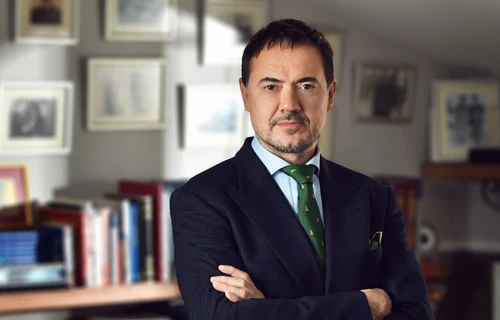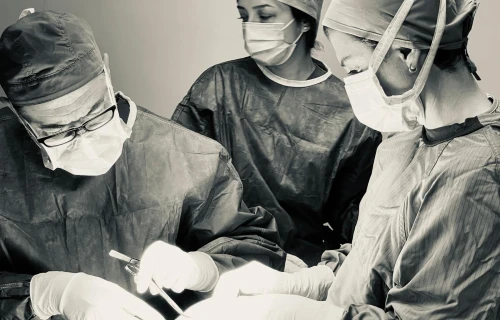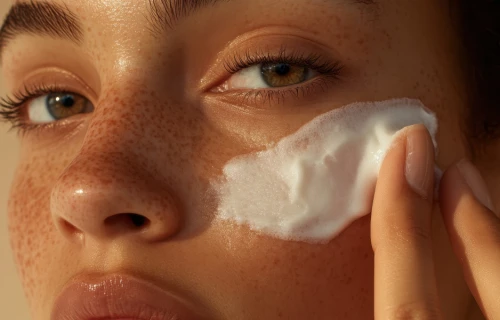Treatment Introduction
Discover your best self with Mr Tunç Tiryaki’s rhinoplasty, designed to refine and reshape your nose to complement your unique facial proportions beautifully. Rhinoplasty, or nose reshaping surgery, is not merely about changing your nose’s appearance but enhancing facial symmetry and balance.
Mr Tiryaki specialises in creating subtle yet impactful changes tailored to your individual aesthetic goals and anatomical features. Whether it’s narrowing a wide nose, smoothing a bumpy bridge, or refining the nasal tip, his approach ensures results that look natural and feel right for your face. This procedure not only improves your aesthetic appearance but can also correct structural issues that impede breathing.

At a glance
Surgery Time
Recovery Time
Key Information
Before & After Rhinoplasty
View Full Gallery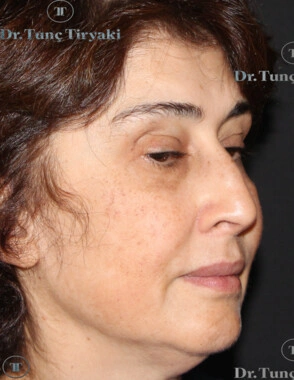
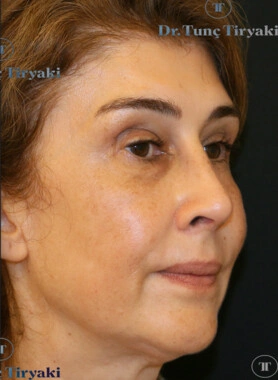
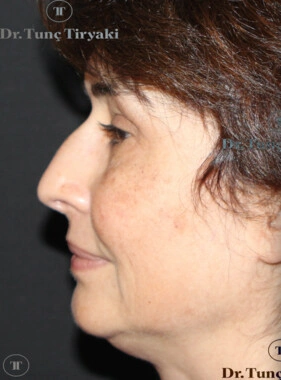
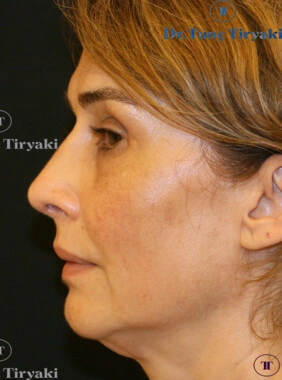
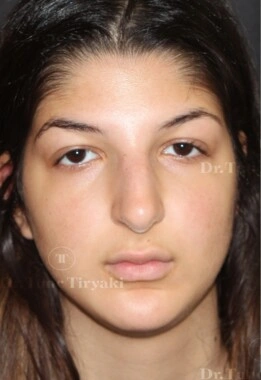
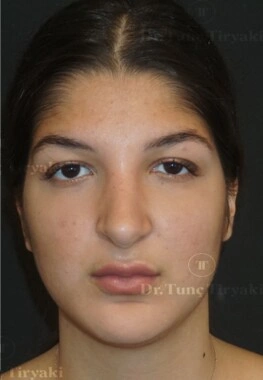
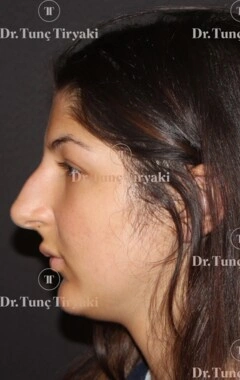
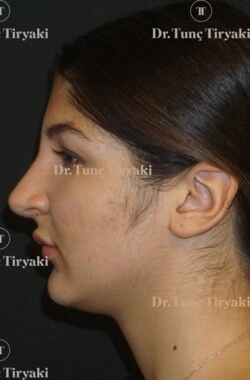
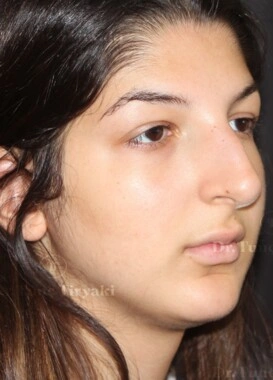
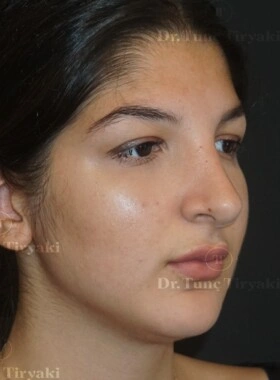
What is Rhinoplasty?
Rhinoplasty is a surgical procedure that modifies the shape of the nose to enhance facial harmony and balance. It can involve resizing, reshaping or realigning the nasal structures to improve both appearance and function. During the procedure, Mr Tiryaki makes a small, well-hidden incision at the columella—the tissue that separates the nostrils—allowing access to the underlying cartilage and bone. This precise approach enables him to reshape the nasal structure effectively, addressing issues from aesthetic concerns to functional abnormalities like a deviated septum. The use of advanced techniques and absorbable sutures ensures a recovery with minimal discomfort, and the strategic adjustments lead to a naturally balanced nose that suits your face.

Mr Tiryaki's Rhinoplasty procedure offers numerous benefits, including enhanced facial symmetry, improved nasal functionality, and a boost in overall self-confidence.

How is Rhinoplasty Performed?
Under general anaesthesia, supplemented by a local anaesthetic to minimise bleeding and discomfort, Mr Tiryaki begins rhinoplasty with a discreet incision in the columella. Through this access point, he carefully reshapes the cartilage and bone to achieve the desired contour. For patients with breathing difficulties, a septoplasty may be performed concurrently to correct internal obstructions. The precise alterations depend on your specific needs, whether it’s reducing a nasal hump, narrowing the nasal width or refining the tip. The procedure typically concludes within two hours, and due to its outpatient nature, patients can return home the same day. Postoperative care involves a splint to support the new shape as it heals, with most patients experiencing only mild discomfort, manageable without strong pain medication.


Who Should Consider Rhinoplasty?
Rhinoplasty is ideal for individuals unhappy with the size, shape or overall appearance of their nose or those experiencing functional issues that impact breathing. Suitable candidates are generally over the age of 16 for females and 17 for males, ensuring facial bone maturity. Whether your concern lies in aesthetic enhancement or functional improvement, Mr Tiryaki’s expertise in rhinoplasty can provide a solution that respects your natural anatomy while achieving your desired changes.
What are the Advantages of Rhinoplasty?
Rhinoplasty offers transformative benefits, enhancing not just the nose but the entire facial aesthetic. Mr Tiryaki’s approach ensures results that look inherently natural. Beyond aesthetics, rhinoplasty can significantly improve breathing functionality by addressing internal nasal obstructions. The surgery also provides long-lasting results, making it a more permanent solution compared to non-surgical alternatives like nose fillers. The integration of 3D imaging technology during the consultation allows you to visualise potential outcomes beforehand, setting realistic expectations for your results.

Recovery and Guidelines for Rhinoplasty Surgery
Post-surgery, patients can usually return home on the same day and are likely to resume most normal activities within a few days, with full recovery typically occurring within two weeks. Initial discomfort can include mild swelling and bruising, but these symptoms quickly subside. Specific post-operative guidelines include avoiding strenuous activities for six months to protect the newly shaped nasal structure, abstaining from wearing glasses for approximately three months to prevent pressure on the nose and managing any slight discomfort with recommended medications.
The subtle incision technique employed by Mr Tiryaki ensures there are no visible scars, and patients can expect to see the final shape of their nose develop as swelling diminishes over several months.
Book a ConsultationFrequently Asked Questions
What do I need to do before rhinoplasty surgery?
Cease smoking, avoid blood thinners and limit alcohol intake for at least three weeks before the operation.
How long will the results of rhinoplasty last?
Rhinoplasty results are generally permanent, with the nose’s new shape stabilising as the tissues fully heal.
Will there be any visible scarring?
Scarring is minimal and typically hidden at the base of the nose, making it virtually unnoticeable.
Can rhinoplasty correct breathing issues?
Yes, corrections like septoplasty can be integrated into the procedure to improve nasal airflow.

